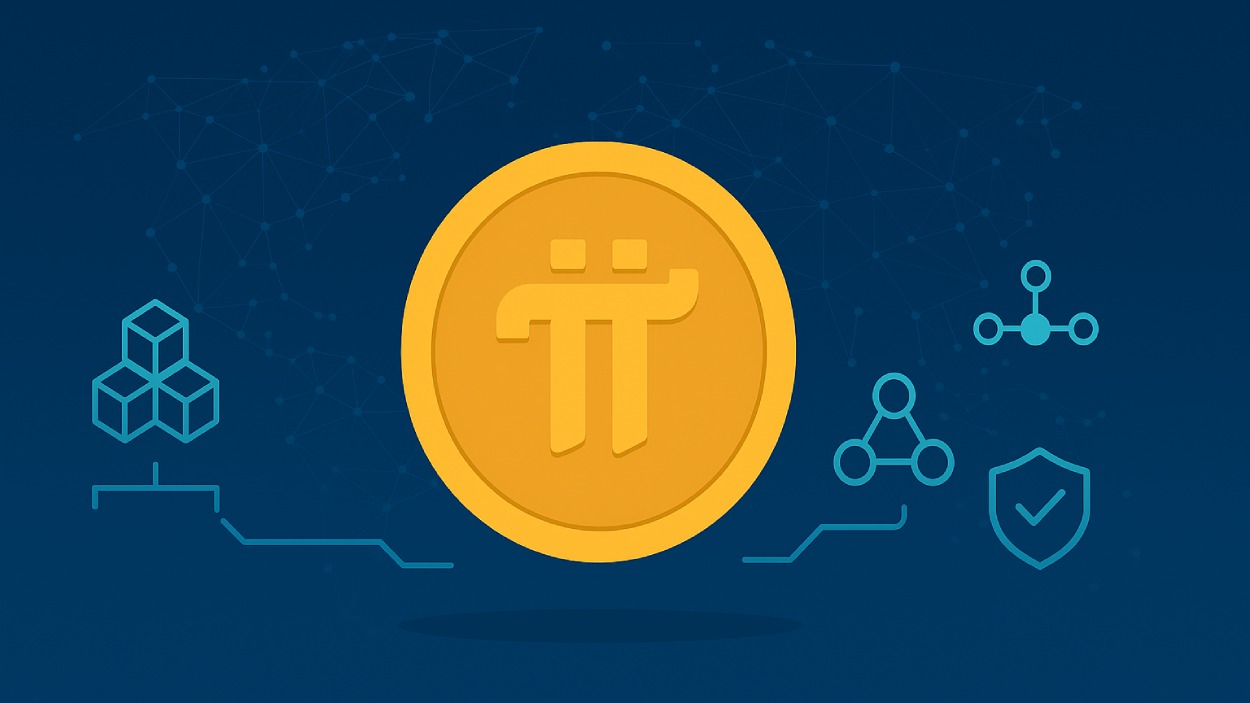Pi Network is moving closer to its Mainnet v23 launch after Testnet 1 demonstrated strong stability, low failure rates, and early success with AI computing.
Quick Summary – TLDR:
- Testnet 1 processed millions of transactions with near-zero failures, showing high technical stability.
- Mainnet version v23 is confirmed, expected to launch soon following strong test results.
- Fast-track KYC system now enables early wallet activation, helping new users prepare for Mainnet.
- Decentralized AI computing pilots through OpenMind demonstrate broader utility for Pi Network nodes.
What Happened?
Pi Network’s first testnet phase, known as Testnet 1, recorded exceptionally low failure rates across millions of transactions. The results signal that the blockchain is now technically ready to transition into its much-anticipated Mainnet version v23. Alongside this, Pi Network is also testing new use cases like decentralized AI computing, and has rolled out faster KYC processing to bring more users on board.
📢BIG BREAKING 🧾
— PiNetwork DEX⚡️阿龙 (@fen_leng) November 10, 2025
Currently, huge transactions are being carried out on TESTNET 1.
Among them, most were SUCCESSFUL with 0 or 1 failure.
⏳ Getting closer to Testnet 2📲🚀#PiNetwork pic.twitter.com/65jJUqRre5
Testnet 1 Validates Mainnet Readiness
Testnet 1 was a critical milestone for Pi Network, simulating real-world conditions to test the system’s scalability and reliability. It delivered solid results.
- Nearly all transactions were completed successfully, with only minor single-failure incidents.
- The platform demonstrated it could handle high transaction volumes under pressure.
- Analysts believe the success of Testnet 1 confirms that Pi’s blockchain is robust and ready for mass adoption.
These technical results are especially important as Pi prepares for its next phase: the launch of Mainnet version v23. While no exact date has been announced, the team has confirmed that development is in its final stages.
Mainnet v23 Brings Major Upgrades
The upcoming version v23 of Pi Network will not just process financial transactions, but will also serve as a foundation for broader decentralized computing applications.
Key features include:
- Support for decentralized applications (dApps) and financial tools.
- Enhanced stability and improved transaction handling capabilities.
- The release of Pi Desktop v0.5.4, which improves user interface and makes bonus rewards more accurate for node operators.
These improvements ensure the network’s infrastructure is ready for high-volume activity and developer growth, reinforcing Pi’s vision of a scalable, real-world blockchain ecosystem.
Fast-Track KYC Accelerates User Onboarding
To prepare for a wider rollout, Pi Network has launched a fast-track KYC (Know Your Customer) system. This allows new users to verify their identity faster and start using their Pi wallets right away.
This new system brings several advantages:
- Ensures network participants are real people, not bots.
- Reduces wait times for wallet activation.
- Promotes broader access and fairness for the community.
- Aligns with Pi’s goal of making the network inclusive and secure.
By simplifying the onboarding process, Pi can grow its user base in a secure and scalable way, readying for the transition to full Mainnet functionality.
Decentralized AI Computing Proves New Use Case
Beyond crypto transactions, Pi Network is stepping into decentralized AI computing, partnering with OpenMind to test new workloads on its node infrastructure.
- Over 350,000 Pi Nodes participated in a proof-of-concept experiment.
- Nodes performed image recognition and other AI tasks using unused computing resources.
- Early tests confirmed that Pi’s system can act as a peer-powered AI cluster.
The Pi team is expected to release a full case study soon, detailing the results and validating Pi’s potential as more than just a blockchain, but also as a computational network for AI and decentralized services.
SQ Magazine Takeaway
I’ve got to say, the Pi Network’s journey is getting seriously interesting. Most crypto projects talk big but struggle to deliver solid infrastructure. But here, we’ve got a blockchain that just handled millions of transactions with barely any hiccups. That’s not something you see every day. Add in the decentralized AI computing angle? Now it feels like Pi is building more than a payment network. They’re building a full-blown decentralized cloud. If they stick the landing with Mainnet v23, this could be a huge moment for the over 50 million pioneers already in the ecosystem.


































































